7 Amazing Wakame Seaweed Benefits, Nutrition, & Side Effects
Add some unique taste and a bunch of vitamins and minerals to your dishes with this nutrient powerhouse.
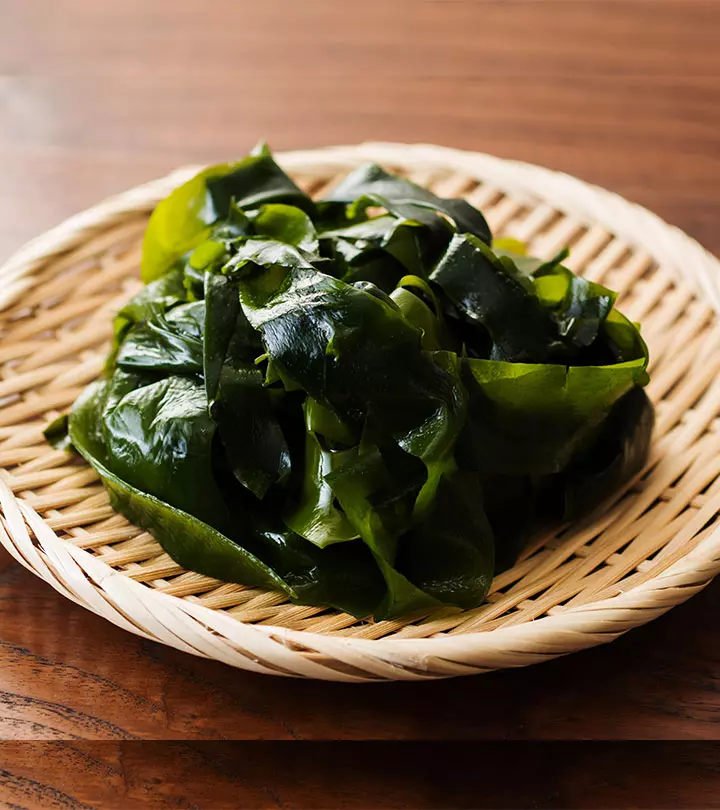
Image: Shutterstock
54Seaweeds are finding their place in everyone’s diet due to their important benefits. One such seaweed that is gaining popularity is wakame. Wakame seaweed benefits, its unique flavor, and taste are making it a must in soups and salads. This seaweed also has a rich nutritional profile and offers various health benefits. Read on to know more about it here.
In This Article
What Is Wakame?
Wakame is a seaweed that generally grows on the northwest Pacific Ocean. It is also known as sea mustard. It is mostly grown by Japanese and Korean sea farmers.
Wakame is mostly used in soups and salads either in dry or fresh forms. It is also freeze-dried for use in various other products. It is rich in beneficial nutrients and we have covered them in the next section.
Key Takeaways
- Usually found on the northwest Pacific Ocean, Wakame is a seaweed.
- It may help you manage obesity diabetes and support thyroid function.
- However, there are possibilities of wakame interfering with thyroid hormones, elevating blood pressure levels, and causing loose stools.
Wakame Nutrition Facts
100 grams of raw wakame contain:
Energy: 45 Kcal
Protein: 3.03 g
Fat: 0.64 g
Carbohydrates: 9.14 g
Fiber: 0.5 g
Calcium: 150 mg
Iron: 2.18 mg
Magnesium: 107 mg
Phosphorus: 80 mg
Sodium: 872 mg
Manganese: 1.4 mg
Vitamin C: 3 mg
Niacin: 1.6 mg
Choline: 13.9 mg
- All values are sourced from USDA
 Fun Fact
Fun FactThis nutrient-dense food may offer multiple health benefits. We discuss them in the next section.
Health Benefits Of Wakame
1. May Possess Anti-Cancer Properties
Wakame contains fucoidan, which is a polysaccharide. Fucoidan is proven to exhibit many beneficial activities. It may influence the inflammatory response in those dealing with cancer. It also may enhance the efficacy of certain anti-inflammatory drugs. Studies have also shown that fucoidan from wakame exhibits anti-cancer properties. It may inhibit cancer cell growth and proliferation. This anti-cancer activity is attributed to the sulfate content in fucoidan. The compound was found to help fight against the cancers of the breast and lung.
2. May Help Manage Obesity
have shown that wakame contains fucoxanthin that may help manage fat deposition in the body. The compound may also regulate weight. Fucoxanthin was also found to effectively reduce white adipose tissue.
However, more quality research is warranted to determine the exact mechanism of fucoxanthin in this regard.
3. May Help Manage Diabetes
suggest that the dietary lipids in wakame may treat insulin resistance induced by a high-fat diet. In rat studies, the fucoxanthin in wakame was also found to exhibit anti-diabetic action. However, further human studies are required in this aspect.
4. May Support Cardiovascular Health
shows that regular seaweed intake may have an inverse relationship with cardiovascular mortality.
Seaweed polyphenols are also known to help treat cardiovascular disorders. Regular consumption of wakame was found to effectively reduce systolic and diastolic blood pressure.
5. May Have Anti-Hypertensive Properties
show that hot water extracts of wakame can significantly inhibit the activity of angiotensin I-converting enzyme (ACE). This particular enzyme is proven to play a major role in causing hypertension. Single or multiple doses of wakame were also found to reduce blood pressure.
6. May Support Thyroid Function
Seaweeds are rich in iodine. Iodine plays a major role in supporting thyroid gland function. Some studies have also shown that regular consumption of seaweeds is linked to healthy thyroid functioning. However, excess intake of seaweed may have negative effects too. Those with hypo- or hyperthyroidism must seek medical advice before consuming wakame or any other seaweed.
7. Has Antioxidant Properties
Wakame seaweed stands out for its notable antioxidant properties, as revealed in a study assessing various commercially available seaweeds. Extracts of wakame displayed significant antioxidant activity, particularly in ethanolic extracts. Among the four types of seaweed checked in the study, wakame had the highest antioxidant and free radical scavenging activity at 58% and 0.42 mg/ml respectively. These findings highlight Wakame’s potential as a potent source of antioxidants. The distinctive ability of Wakame to scavenge free radicals signifies its capability to neutralize harmful molecules that cause oxidative stress in the body.
These are the important health benefits of wakame. This seaweed needs some preparation before you can add it to your dishes. We have discussed this further in the next section.
How To Use Wakame
Wakame is available in dried, powdered, or semi-wet forms. It is generally soaked in water for 30 minutes before use. This rehydrates it fully and enables you to separate its strings. These separated strings can be a healthy substitute for other green leafy vegetables.
 Fun Fact
Fun FactYou can also include wakame in your diet in various ways. We have listed them below.
How To Eat Wakame
The slight sweetness of wakame makes it a perfect addition for various dishes. We have listed some popular culinary uses of wakame.
- In Soups: You can add turkey to your favorite soups or noodles. Cut or chop wakame and add it to the hot soup/noodles. Let the flavor of wakame infuse into the food item.
- In Salads: Wakame adds a unique flavor to any salad. It complements almost all vegetables. Add soaked wakame to salads as a garnish. You can also mix it with some white or rice vinegar, soy sauce, sesame oil, and sesame seeds for a tasty salad.
- In Pickles: Another popular use of wakame is adding it to pickled vegetables. It can go perfectly with pickled cucumbers or pickled squashes.
- To Fruit Juices Or Smoothies: Instant wakame can be added to smoothies or fruit juices as a topping. Rehydrated or soaked wakame tastes better if blended with fruits or smoothie mixtures.
To Teas
: Wakame powder can be added to many herbal teas. You can also prepare wakame tea by adding a teaspoon of dried wakame powder, a tablespoon of green tea powder, and water. Additionally, you can also add a spoon of lemon juice to boost freshness and taste.
Wakame is often confused with nori, another popular seaweed. Continue reading to understand the major differences between the two.
Wakame vs. Nori
While both wakame and nori are seaweeds mostly used for culinary purposes, they are distinct in their own ways.
| Wakame | Nori |
|---|---|
| Available as dried strings or threads | Available as dried sheets that are compressed before packaging |
| Sold in the air-dried form | Sold slightly roasted |
| Requires rehydration before use | Can be used directly without soaking |
| Mostly used in salads and soups | Mostly used in sushi, rice balls, and noodles |
Even though wakame is a natural food, it may cause side effects if consumed in excess. Continue reading to know more.
Side Effects Of Excess Wakame Consumption
1. May Interfere With Thyroid Hormones
Even though wakame is consumed for its iodine content, excess intake may impair thyroid function. As per a study, excess consumption of wakame or other seaweeds may impair thyroid function due to their potentially high mercury content.
High seaweed consumption may also increase the risk of papillary carcinoma of the thyroid.
Additionally, consumption of seaweed supplements may lead to an imbalance in thyroid hormones in pregnant women. Hence, caution is highly advised before consuming wakame, more so if you are dealing with hyperthyroidism or hypothyroidism.
2. May Elevate Blood Pressure Levels
Certain brands of wakame are high in sodium, which is added to increase its shelf life. This added sodium is found to have many detrimental effects on overall health, in addition to causing blood pressure levels to rise. If you are dealing with hypertension, it is highly recommended to consult your doctor before you start consuming wakame.
3. May Cause Loose Stools
Anecdotal evidence suggests that wakame may cause loose stools if consumed in excess. This could be attributed to its high fiber content. A study had shown that insoluble fiber may exhibit a laxative effect. However, more research is required in this regard.
Wakame is an edible seaweed low in calories with a unique taste. It offers benefits that are similar as well as distinct from other seaweed benefits. Wakame intake may fight against the breast and lung cancer cells, manage obesity, regulate blood glucose levels, and support cardiovascular health. However, excess consumption of this seaweed may cause some side effects. It may interfere with thyroid hormones, elevate blood pressure levels, and cause loose stools. Hence, consult a doctor and consume it in moderation to reap its many benefits.
Frequently Asked Questions
Is wakame good for skin?
Wakame is believed to be beneficial for skin health. It may help stimulate collagen production, tighten skin, and improve skin elasticity. However, limited research is available in this regard.
How much wakame seaweed can you eat?
The intake of wakame seaweed in moderation is considered safe. However, consumption of more than 10-20 g daily may cause some side effects.
If you are new to wakame, watch this video to understand this nutrient-rich seaweed better. Discover its unique qualities, explore its myriad benefits, and why you must include it in your diet for optimal health. Click play for more.
References
Articles on StyleCraze are backed by verified information from peer-reviewed and academic research papers, reputed organizations, research institutions, and medical associations to ensure accuracy and relevance. Read our editorial policy to learn more.
- Biological Activities of Fucoidan and the Factors Mediating Its Therapeutic Effects: A Review of Recent Studies
https://www.ncbi.nlm.nih.gov/labs/pmc/articles/PMC6471298/ - Fucoidan Extracted from Undaria pinnatifida: Source for Nutraceuticals/Functional Foods
https://www.mdpi.com/1660-3397/16/9/321 - Fucoxanthin from edible seaweed Undaria pinnatifida shows antiobesity effect through UCP1 expression in white adipose tissues
https://pubmed.ncbi.nlm.nih.gov/15896707/ - Anti-obesity and anti-diabetic effects of fucoxanthin on diet-induced obesity conditions in a murine model
https://pubmed.ncbi.nlm.nih.gov/21475918/ - Frequency of Seaweed Intake and Its Association with Cardiovascular Disease Mortality: The JACC Study
https://www.ncbi.nlm.nih.gov/labs/pmc/articles/PMC7840157/ - Potential Role of Seaweed Polyphenols in Cardiovascular-Associated Disorders
https://www.ncbi.nlm.nih.gov/labs/pmc/articles/PMC6117645/ - Antihypertensive effects of Undaria pinnatifida (wakame) peptide on blood pressure in spontaneously hypertensive rats
https://pubmed.ncbi.nlm.nih.gov/15135150/ - Angiotensin I converting enzyme activity in hypertension. Relationship to blood pressure renin-sodium profiles and antihypertensive therapy
https://pubmed.ncbi.nlm.nih.gov/2864856/ - Iodine and thyroid function
https://www.ncbi.nlm.nih.gov/labs/pmc/articles/PMC4049553/ - Minerals from Macroalgae Origin: Health Benefits and Risks for Consumers
https://www.ncbi.nlm.nih.gov/labs/pmc/articles/PMC6266857/ - Antioxidant activity of selected commercial seaweeds
https://pubmed.ncbi.nlm.nih.gov/22692475/ - Risks and benefits of consuming edible seaweeds
https://www.ncbi.nlm.nih.gov/labs/pmc/articles/PMC6551690/ - Dietary Sodium and Health: More Than Just Blood Pressure
https://www.ncbi.nlm.nih.gov/labs/pmc/articles/PMC5098396/ - Seaweeds as a Functional Ingredient for a Healthy Diet
https://www.mdpi.com/1660-3397/18/6/301
Read full bio of Dr Archana Batra
Read full bio of Aparna Mallampalli
Read full bio of Ravi Teja Tadimalla
Read full bio of Moksha Gandhi







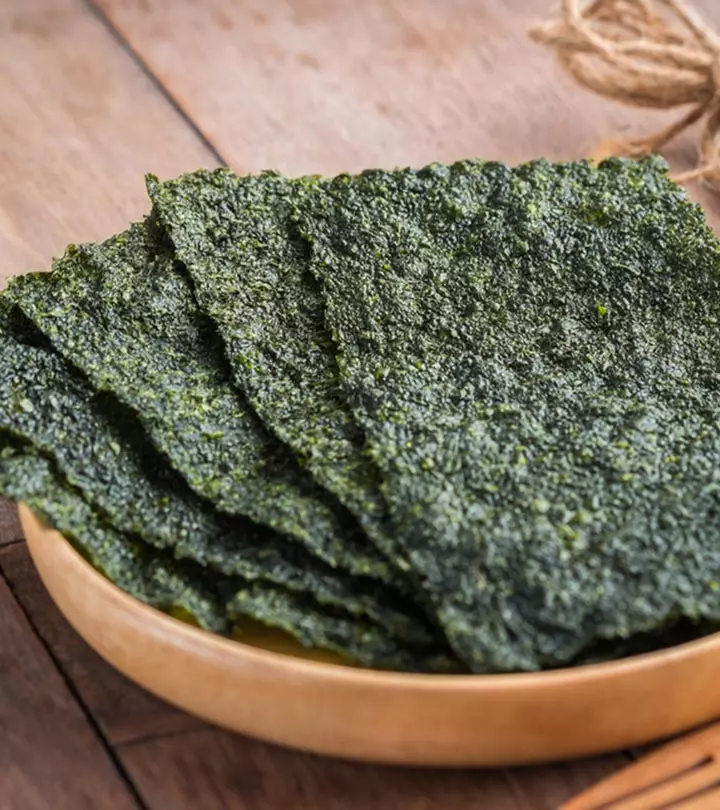








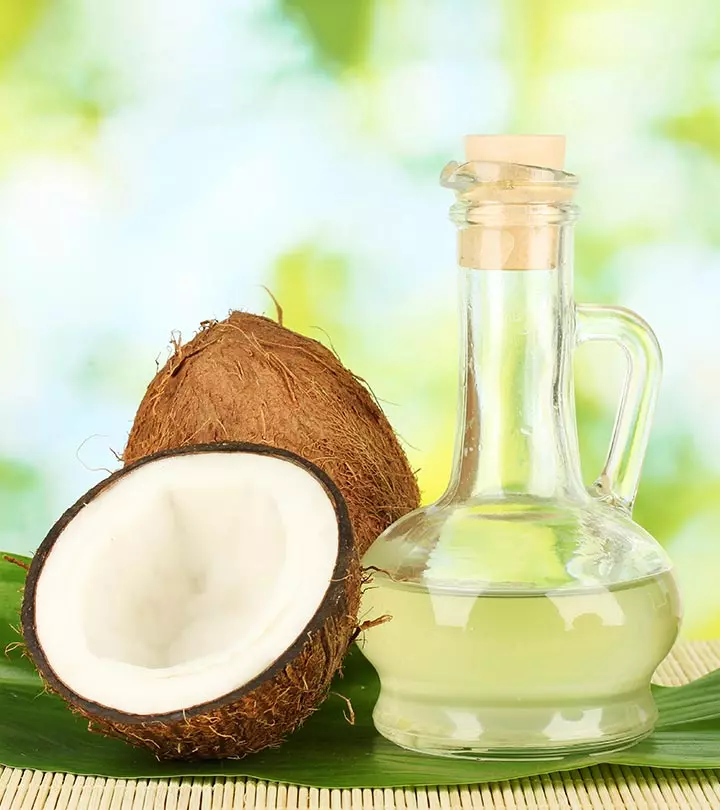


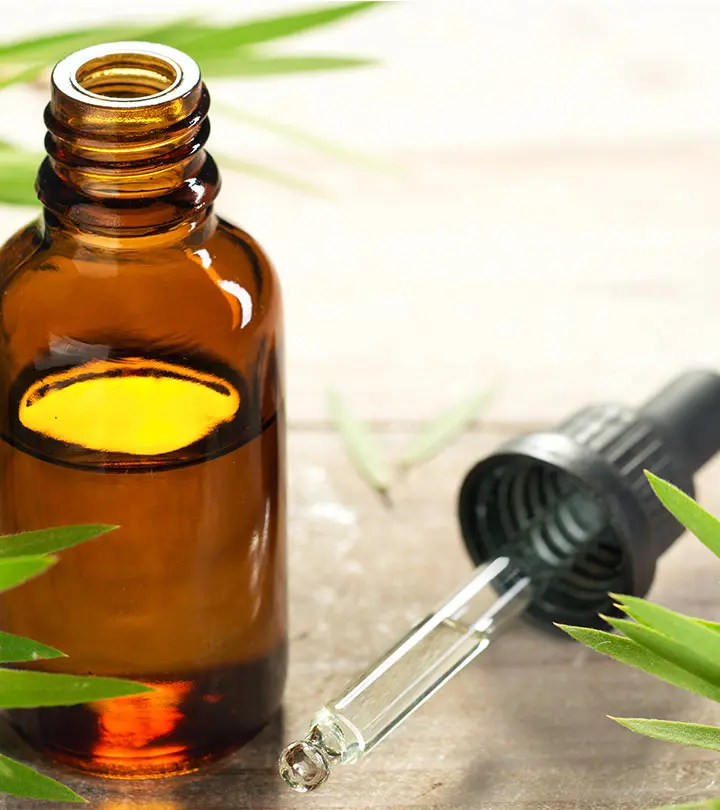
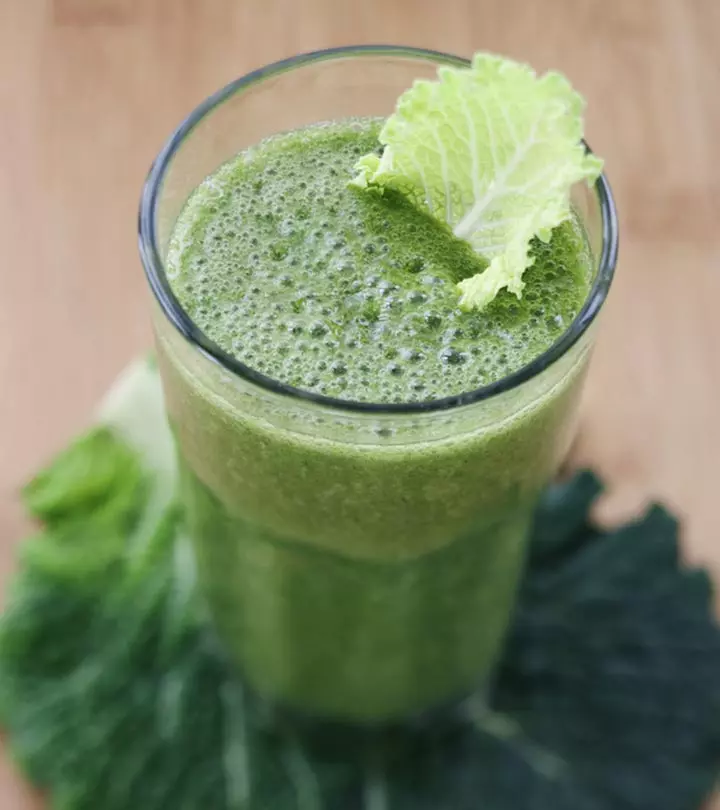





Community Experiences
Join the conversation and become a part of our empowering community! Share your stories, experiences, and insights to connect with other beauty, lifestyle, and health enthusiasts.